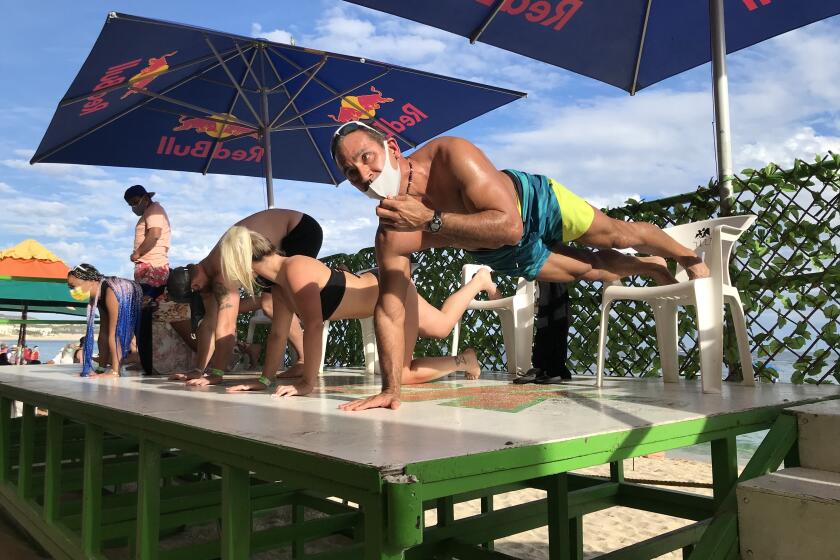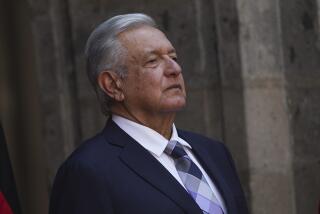After urging people to ‘stay home,’ Mexico’s coronavirus official takes a maskless vacation
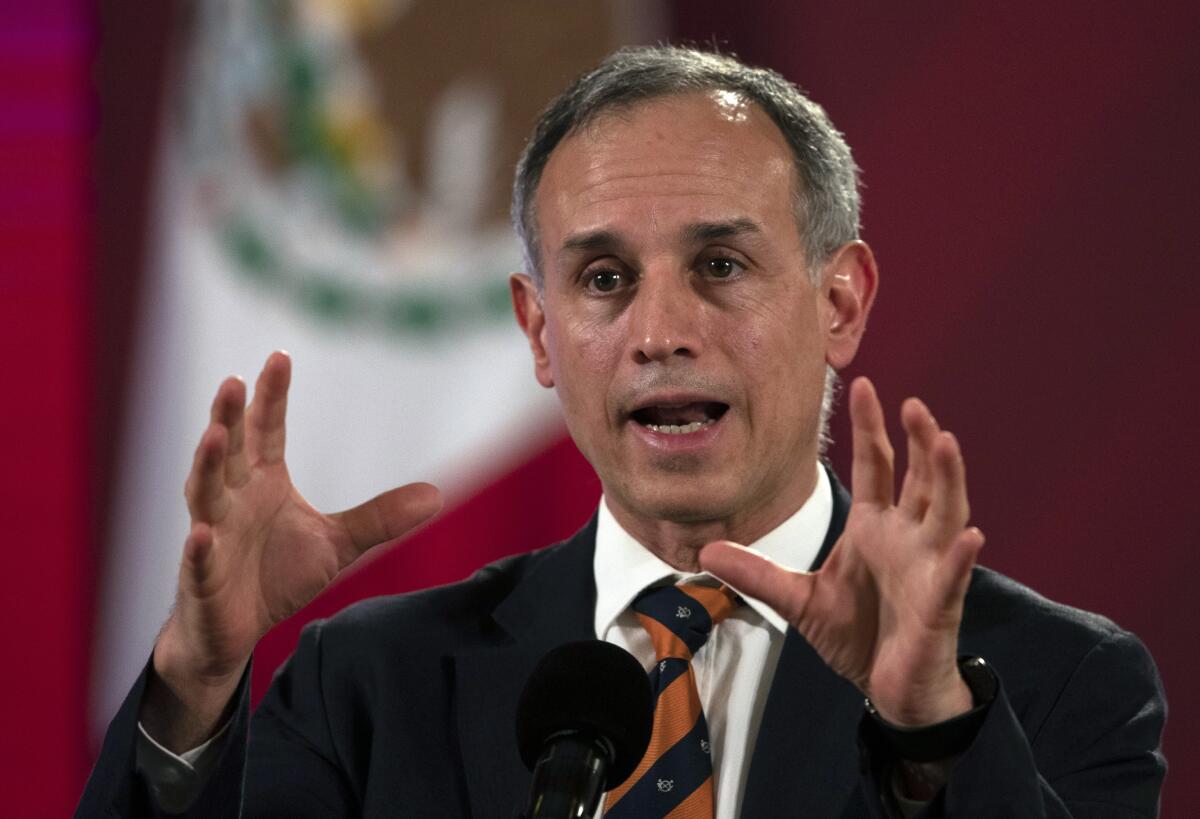
MEXICO CITY — Every night, in a televised news conference, Mexico’s COVID-19 point man gives a somber update on the pandemic’s toll.
Hugo López-Gatell, Mexico’s undersecretary of health, speaks of a scarcity of oxygen tanks, of hospitals at a near breaking point and of healthcare workers who have died in numbers higher than anywhere else in the world.
Then he makes a dramatic plea, an appeal he has uttered so often and with such conviction that it has spurred internet memes and has even been remixed into a reggaetón song: “Stay home.”
So it struck a nerve for many in the nation when photographs emerged over the weekend showing López-Gatell relaxing on a sandy Pacific beach nearly 500 miles from his residence in Mexico City.
In one photo, he is seen seated at an outdoor bar with a female companion. Neither is wearing a mask. In a second photo, taken a few days earlier on a crowded flight from Mexico City to the beach resort in southern Oaxaca, López-Gatell is seen talking on a cellphone — again, no mask.
Now he’s among the club of public authorities criticized for what some consider pandemic hypocrisy. Other officials caught for not practicing what they preach include California Gov. Gavin Newsom, who was scorned after attending a November birthday dinner at a Napa Valley restaurant, and Austin Mayor Steve Adler, who in November filmed a video urging his constituents not to travel — while he was on a Mexican vacation in Cabo San Lucas.
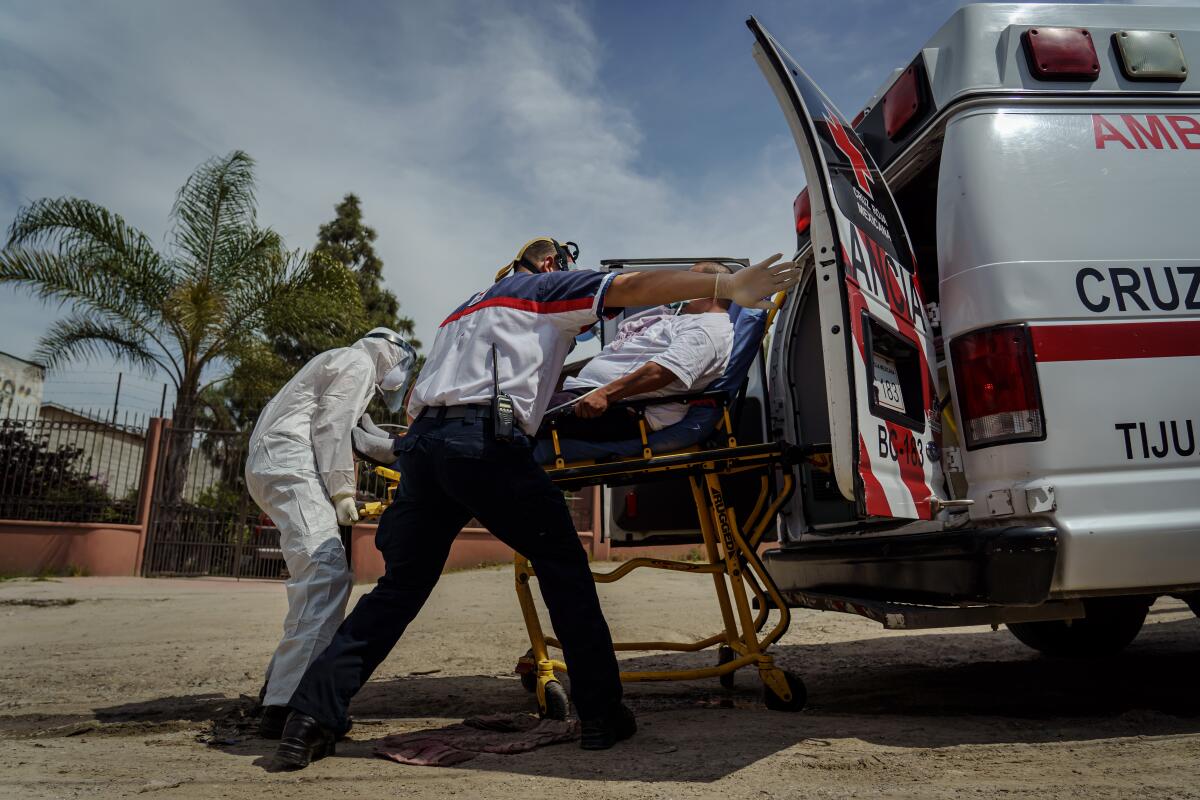
López-Gatell, who apparently flew to the beach on New Year’s Eve while on a short break from his nightly news conference, did not immediately address the controversy.
Mexican President Andrés Manuel López Obrador downplayed the bad optics.
“He has been working a lot, very hard,” López Obrador told reporters. “He is a very good public servant, a good specialist, a professional.”
But the beach photos have sparked anger in Mexico, where authorities, including López-Gatell, have repeatedly demanded sacrifice from citizens since the coronavirus began its spread.
In the usually bustling capital of Mexico City, nonessential businesses have been ordered shuttered for weeks, leaving shopkeepers, waiters and other workers scrambling to pay rent in a country where unemployment insurance does not exist. Doctors and nurses at public hospitals in the city were asked to forgo their Christmas vacations to tend to a surge in patients.
“Do you know who deserves a break and doesn’t take one?” asked political analyst Paula Sofía Vázquez on Twitter. “Doctors and health personnel who have not stopped since March, who have been isolated from their family and who also know that, thanks to collective irresponsibility, the worst days of the pandemic are coming.”
“He’s traveling at the worst moment of the pandemic,” political writer Denise Dresser said on Twitter of López-Gatell. “He is far from where he should be: with health personnel, implementing the vaccination campaign, setting an example.”
Once an unknown bureaucrat, López-Gatell has become a political rock star in recent months, with even his romantic life closely covered by the Mexican media.
While López Obrador has refused to wear a mask and downplayed the severity of the virus, López-Gatell has served nightly science-based reminders of the pandemic’s risks, earning him comparisons to Dr. Anthony Fauci in the United States.
Still, López-Gatell has faced mounting criticism over a pandemic-containment strategy that many believe has failed.
In the early days of the virus, Mexico made a calculation: Instead of spending on testing and contact tracing, it would focus on increasing hospital capacity. Transmissions spiraled, and the added hospital capacity wasn’t enough.
Mexico has the world’s highest rate of deaths per 100 people infected with the coronavirus, according to the Coronavirus Research Center at Johns Hopkins University. Nearly nine people die for every 100 confirmed cases here, compared with two in the United States.
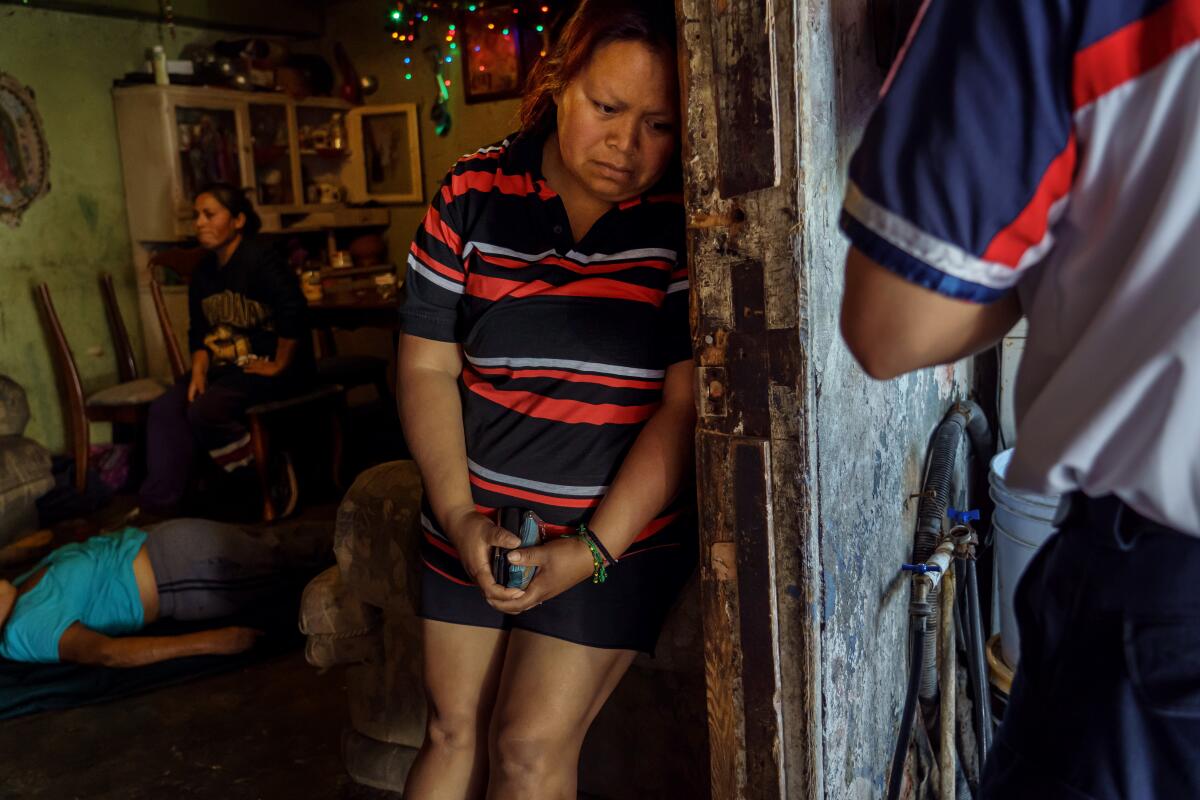
The country had recorded more than 127,200 COVID-19 fatalities as of Monday — the fourth-highest death toll globally, according to the Coronavirus Research Center. Researchers at the National Autonomous University of Mexico say the true numbers may be two to four times higher.
In August, nine of Mexico’s 32 governors called for López-Gatell to resign, citing “an erratic handling of the epidemic and a lack of efficient response.” The plea, which came from members of political parties that oppose Lopez Obrador’s ruling Morena Party, was ignored by López-Gatell, and the president suggested it was politically motivated.
López-Gatell isn’t the only one in Mexico to be publicly shamed for actions during the pandemic. Increasingly, Mexicans are pointing to an uptick in travelers from the United States that appears to have contributed to a rise in coronavirus cases and deaths in some regions. After a recent dance music festival in the Caribbean beach town of Tulum, dozens of attendees fell ill.
Tourism is quickly recovering in Mexico, as Americans flock south for an easy escape. But it’s also bringing an uptick in COVID-19 cases.
More than half a million Americans flew to Mexico in November — the most recent month for which data are available — mostly to beach resorts.
An American promoter famous for hosting an annual party in Palm Springs faced criticism after organizing a festival last weekend in Puerto Vallarta. Local media reported that the event drew thousands, many from Southern California. Videos showed dance floors teeming with shirtless, maskless men, despite the fact that events in bars and clubs are currently prohibited in the city.
“It was difficult to contain all these tourists,” said Puerto Vallarta Mayor Arturo Dávalos in a television interview Monday. “We hope this doesn’t cause infections to rise.”
Cecilia Sanchez in The Times’ Mexico City bureau contributed to this report.
More to Read
Sign up for Essential California
The most important California stories and recommendations in your inbox every morning.
You may occasionally receive promotional content from the Los Angeles Times.
